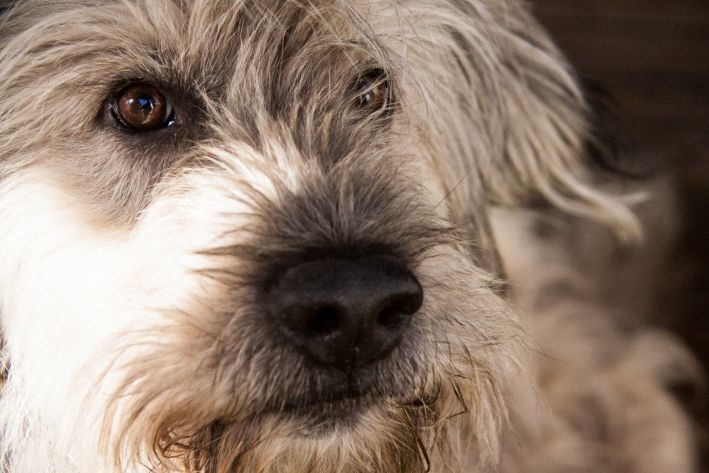Why a Wet Dog Smells Bad: 10 Reasons
Anyone who has ever cuddled a wet dog knows that indescribable smell, often described as 'wet dog smell'.
But where does this special aroma come from?
And why is it so different from the smell of our furry friend's dry fur? In this article, we explore the science and biology behind this phenomenon.
Microorganisms
Wet dog odor comes from microorganisms living on your pet's skin. These yeasts and bacteria leave behind volatile organic compounds. When your dog gets wet and the moisture evaporates, it takes these compounds and the odor with it.
Natural oils
Dogs need a way to protect their fur. Just like humans, this is due to the natural oils on their skin.

Unfortunately, when these oils are released and mixed with water, it can result in an unpleasant odor. It is often described as musty or damp, which lingers even after the dog is completely dried.
Anal glands
The anal glands are two small sacs located in a dog's anus.
These glands produce a strong-smelling fluid, especially when the dog is anxious or scared, which can happen during a bath. When this fluid gets wet, the resulting odor can become even worse.
Dead skin cells and hair
Like humans, dogs naturally shed skin cells and hair.
When your pet gets wet, these cells and dead hair can cause an unwanted sour or musty odor. These dead skin cells can also become trapped in your dog's wet fur, which will only make the odor worse.
Water source
Some dogs love to swim, happily doing so in streams, lakes, rivers, and ponds. They may come into contact with bacteria, algae, and other objects in the water that can cause an unpleasant odor.
After bathing, it is important to clean your dog to keep him healthy.
Nutrition
Your dog's diet can contribute to skin odor and tummy problems if he has food allergies or intolerances, which can make wet dog odor worse.
Fish oil supplements, which have numerous health benefits, can also cause your pet to have an unpleasant odor.
If there are any concerns that your dog's diet may be contributing to odor, please consult your veterinarian for advice.
Skin infections
Dogs that live in damp areas or spend a lot of time in water may develop bacterial or fungal infections.
This is especially true for dogs with thick fur. Infections can cause unpleasant odors, especially when the dog is wet. To prevent such infections, it is important to keep the dog clean and dry completely. If you think your pet has a skin infection, consult a veterinarian.
Poor hygiene
When a dog does not maintain a proper hygiene regimen, unpleasant odors can become a problem. Dogs need regular bathing, nail trimming, ear cleaning, and brushing to help reduce odor.
Remember to dry your dog completely after bathing to avoid other problems.
Breed
Some dog breeds smell more strongly than others. This is usually seen in breeds with oilier skin and thicker coats, as well as wrinkles and skin folds. Some of these breeds include huskies, retrievers, shar-peis, and pugs.
Ear infections
Just as some breeds are more prone to bad odors, the same can be said for ear infections.
When bathing a lop-eared dog, you may notice a strong odor, which may be caused by yeast or bacterial infections in the ears. If you notice these odors, take your dog to the vet.
Earlier we wrote about which dogs are the most dangerous.
